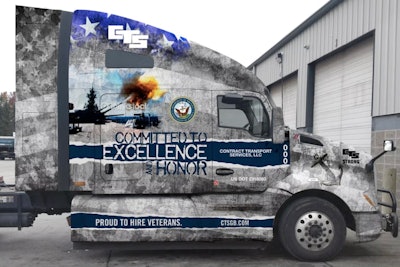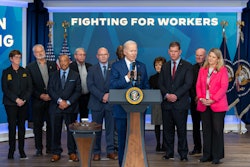
Nailing down sources for a story is often hit and miss — and more of a miss around the holidays.
Through the years, I’ve had some interesting rejections. Some are completely understandable like, “We’re entering our quiet period” which means no one at that company better so much as sneeze in the direction of the press or investors until nap time is over. This typically happens before quarterly investor reports. Any public disclosures are closely governed by the feds during the quiet period so I totally get that. No one wants to rock the boat during that critical time.
Some rejections come as a total surprise. What you see as a great opportunity for both that company and CCJ readers others see as a bad fit and may respond with something like, “Thank you for thinking of us, but we’ll have to respectfully decline.” Who knows? Maybe the pitch wasn’t quite on target or maybe a swamped PR agent sees it as another late night at the office.
The shortest rejection I’ve gotten yet is “Pass” which is a wee bit longer and a tad more graceful than “No” but still has a dating app sting to it as if I’ve been swiped clean off the screen.
[Related: J.B. hunt honors veterans with Wreaths Across America]
At the end of the day, it’s no big deal. You shrug it all off and keep rolling along buoyed by the notion that you’ll eventually be fueled by enough yesses to get the next story done.
And sometimes you’ll be blown away. That was the case with one of my more recent articles which focuses on recruiting veterans for truck technician jobs. I counted ten sources for the story. Ten. I’ve never had so many for one story. It was like an early Christmas present of sorts and reminded me of how important veterans are perceived in the industry. And I don’t have to look too far.
Both my dad and stepdad were Marines and had served in Southeast Asia during the turbulent 1960s. After leaving the military, my dad had a long career managing truck service and parts while my stepdad remained in the Corps and went on to lead efforts to maintain equipment including trucks and tanks. Both men had a big appreciation for military service and for heavy-duty transportation realizing full well the vital roles each played in protecting and promoting civilizations around the globe.
Sadly, both men died much too young of cancer and never had a chance to see me reporting on topics that impacted them in some way nearly every day.
One of course would be working with veterans. I’ll never forget my dad telling me how World War II veterans turned out to be the best group of people he had worked with given their tenacity to focus on a task at hand and get it done come hell or highwater.
There was also the time my stepdad gave me a tour of 1st Maintenance Battalion at Camp Pendleton, which he led in the 1980s. I was impressed not only by the sheer size of the building where they serviced and rebuilt trucks, tanks, communications equipment and God knows what else but also by a distinct and encouraging esprit de corps that you just knew would win the day again and again.
I saw signs and heard lingo that made absolutely no sense to me but were of course essential to keeping this hardworking team on task.
Methella Green, a military recruitment coordinator at Cox with 30-plus years of experience in helping service men and women transition to the private sector, reminded me recently of the military’s esoteric languages—yes, it varies depending on the branch, etc.—which doesn’t always translate so well when a young veteran is trying to market him or herself at a job fair.
“A lot of them don't understand how to translate their military experience into the civilian world,” Green said and added that they “don’t know how to really sell themselves.”
That’s where companies in the trucking industry can step up to help bridge the gap by either learning that lingo or hiring someone who knows it well like Green.
That will definitely help at a time when the task of recruiting veterans has become a lot more competitive given shrinking enlistment rates. Google ‘U.S. military enlistment numbers’ and you’ll quickly see what I mean. One of the top stories on Thursday from the U.S. Naval Institute reads “Tough military recruiting environment is about more than low unemployment, experts say.”
Ed Coull, national director of military admissions at Universal Technical Institute and an Air Force veteran, told me he doesn’t fault the military for trying to hold onto their servicemen and women. “They have to maintain that force structure,” he said. “They have to have a certain percentage of folks that are deployable at any given time.”
But still, there will be those who are ready to transition and Green, Coull and other recruiters will be more than happy to sign them up.
“Military is my passion,” said Green who’s married to an Army veteran. “That's my love. That's my life.”












